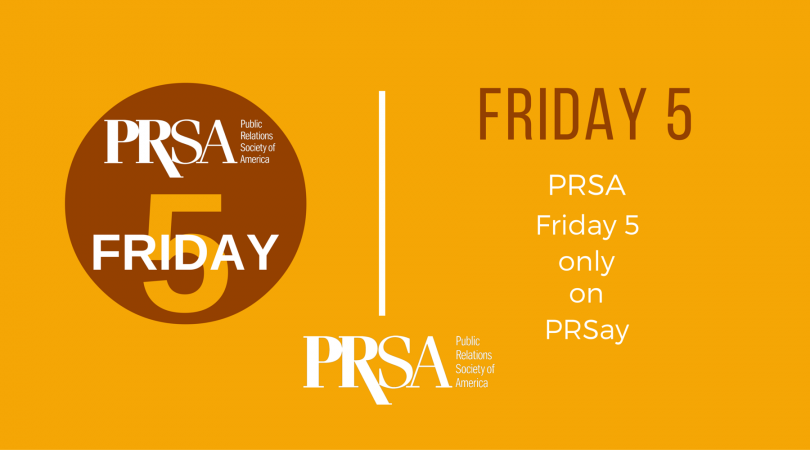The social media experts of the world often share social media “best practices” for brands and companies to emulate. However, public relations professionals can learn just as much (if not more) from “worst practices.” On what seems like a daily basis, brands and companies are finding themselves in hot water for their activity, or lack of activity, on Twitter or other social media sites.
In this week’s PRSA “Friday Five” post — an analysis of the week’s biggest public relations and business news and commentary — we look at the controversial act of “astroturfing” and New York’s fight against the practice, airlines that are shooting themselves in the foot and a food brand that is getting the Chick-fil-A treatment. Finally, we will discuss a publication taking a hard stand against social “trolls.”
New York State Fines ‘Reputation’ Firms in Fake Review Crackdown (PRNewser)
“Reputation-enhancement firms” writing fake or misleading reviews are on notice in New York State. New York Attorney General Eric T. Schneiderman has enacted “most comprehensive crackdown to date on deceptive reviews on the Internet.” Nineteen companies were fined after a yearlong investigation, which found that companies were paid to “astroturf” for clients on sites like Google, Yahoo!, and Yelp.
Will the fines be enough to deter this deceptive practice? The article notes, “Still, the sums lost in the agreement were relatively small, and it feels like a tiny drop of water in an ocean full of fake raves.”
There are many ways to handle social media criticism, but most experts would probably agree that further angering the person criticizing you is probably not the best solution. That is allegedly how the budget airline easyJet handled a passenger (and unlucky for them, a journalist named Mark Leiser) tweeting about bad customer service. The passenger tweeted that easyJet delays prevented a soldier from making a vital connection to get him to his service destination. Additionally, he alleges that the airline refused to help him out with change costs.
Following his tweet, an airline employee approached him and told him he could not get on the plane. Leiser explains, “…the manager arrived and told me that based on my tweet they couldn’t let me board the flight because I wasn’t allowed to do that and I should know better. He then called over to the girl on the counter to instruct my bags be taken off the flight. It wasn’t until I asked him if he’d heard of free speech that the tone changed. According the article, easyJet claims they never denied boarding to Leiser, but did respond to him via Twitter to apologize.
Popular Science eliminates comments (Poynter)
Have the comment sections of online websites spun out of control? Is it important for social interaction to allow commenting to accompany each article? Popular Science has decided to let their articles speak for themselves.
According to line content director, Suzanne LaBarre, intellectual debate has been overwhelmed by “trolls and spambots” so the publication has decided to turn the commenting option off. LarBarre stated, “Comments can be bad for science.” With the vitriol of anonymous online commenters, one can only imagine that Popular Science won’t be the only publication making this decision. Only time will tell how readers will react.
Chairman says Barilla ads won’t feature gay families (PR Daily)
The chairman of the world’s leading pasta maker, Guido Barilla of the Barilla Group, has infuriated consumers all over the globe by saying on an Italian radio station that the brand would never feature a gay family in its advertising. Barilla said, “For us, the ‘sacral family’ remains one of the company’s core values. Our family is a traditional family…If they like our pasta and our message, they will eat it; if they don’t like it and they don’t like what we say, they will … eat another.”
In the aftermath, it seems that Barilla may receive the Chick-fil-A treatment, as equal rights proponents are calling for a boycott of the brands. Barilla has apologized, saying that he “only wanted to underline the central role of the woman in the family.”
Social Media Crisis Management: Lessons Learned from British Airways (Spin Sucks)
Airlines (just like our easyJet example above) are used to criticism via social media. However, the social media team at British Airways experienced what happens when the customer takes the criticism a step further. Hasan Syed’s parents flew British Airways from Chicago to Paris, and when they got to their destination they realized they were missing luggage. After two days of unanswered calls, Syed took to Twitter to air his grievances…by buying a “sponsored tweet.”
The article offers preparation tips to brands, including:
- Create a Plan
- Establish a Clear Chain of Command
- Get to the Source
For a full list, visit the full article on Spin Sucks.







